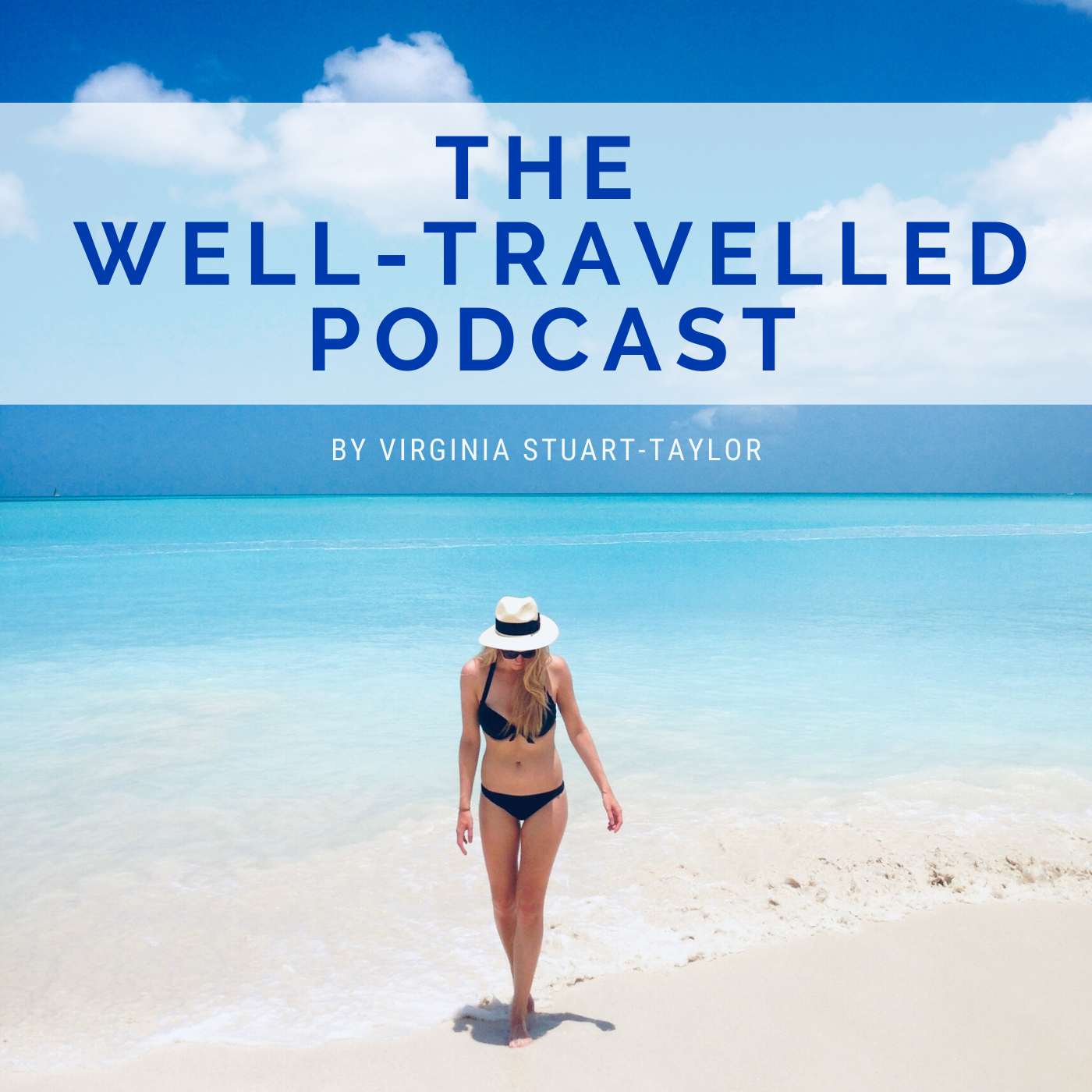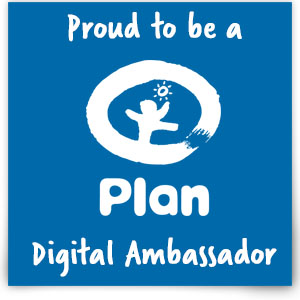Inspiring Individuals: Roz Savage, Solo Ocean Rower
 At the Adventure Travel Show a few weeks ago there were some amazing and inspiring talks, one of which was given by Roz Savage, who she herself admits that she doesn’t fit the stereotypical image of a male, bearded and bedraggled adventurer. She’s female, petite and has some incredible achievements to her name: she holds four Guinness World Records for solo ocean rowing. How many people can claim that? She was the first woman to row solo across the Atlantic, Pacific and Indian ocean, clocking up over 15,000 miles in a 23-foot-long rowing boat, spending over 500 days of her life solo at sea.
At the Adventure Travel Show a few weeks ago there were some amazing and inspiring talks, one of which was given by Roz Savage, who she herself admits that she doesn’t fit the stereotypical image of a male, bearded and bedraggled adventurer. She’s female, petite and has some incredible achievements to her name: she holds four Guinness World Records for solo ocean rowing. How many people can claim that? She was the first woman to row solo across the Atlantic, Pacific and Indian ocean, clocking up over 15,000 miles in a 23-foot-long rowing boat, spending over 500 days of her life solo at sea.
During her talk I was simply gobsmacked at how much she has accomplished – it really did make me want get out there & attempt a big new challenge or adventure. Luckily, I managed to find my voice again for my interview with Roz after the talk, where we delved into the motivation behind her mad expeditions, her transformation from management consultant in London (yes, she spent 11 years working in an office before turning her life around) into ocean rower and environmental campaigner, the materialistic world we’re all victims of, her advice for anyone pining for an adventure and the reason why Roz won’t be taking to her rowing boat again. Her website www.RozSavage.com has a huge amount of information on her journey and I seriously recommend you look into her story in more depth – my interview with her really had had a profound impact on how I personally view the world. You can also follow her on twitter @rozsavage.
There are 3 things you need: discipline, determination and dedication. If you’ve got those three things, and a big dollop of enthusiasm as well, it’s absolutely amazing what you can achieve.
Q: It was really interesting that you mentioned earlier in your talk that, out of 52 talks here this weekend, only a handful of them, 5 at most, are given by women. It got me thinking, how do you think we can encourage women to take up challenges & adventures like you have?
A: I suppose it does become a bit self-perpetuating. It’s important that us women who have done it go out there and talk about it, and talk really openly about the difficulties of it. I think back to the years when I was reading, when I was the armchair-adventurer, reading all those books about these intrepid bearded people and most of those books didn’t really seem to convey the vulnerability and the doubts. Something I try to do to some extent in my presentations is to say that it’s ok to doubt whether you can do it, because you won’t know until you try, and it’s ok to feel like you’re not that kind of person. When I was sitting in the audience at the Adventure Travel Show back in 2004 I saw those adventurers giving talks, and I thought I was just not one of those people. However, I think we need to show that adventurers are only human beings and that you don’t have to be ex-military, you don’t have to be six-foot-tall, you don’t have to have a beard in order to have an adventure.
Q: You’re a perfect role model for this.
A: I suppose I’m trying to break down people’s preconceptions that a short woman who’s already in her mid-thirties can’t do something like this. In 2004 one of the other speakers was Rosie Swale-Pope who had already run across Cuba, but she then ran around the world, setting out on her 57th birthday! She made me think ‘Oh wow, not only can women do cool stuff, but even middle-aged women can do cool stuff!’
Q: So you do you think there is a possibility within every single person to go off and do a big adventure?
A: That’s a really interesting question. I think psychologically there are a lot of people who are just not interested in adventure. Physically I think most of us can. Especially when you hear about amazing people like Hilary Lister – she’s quadriplegic and she sailed solo across the English Channel just by breathing down some tubes, that’s how she steered her boat. When you read about something like that, it just destroys all your excuses! I also know a blind guy called Miles Hilton-Barber – he’s climbed Everest, he’s been to the South Pole I’m pretty sure, he’s even driven a rally car, although you have to really admire his co-driver rather than him for that! So it’s absolutely phenomenal what people can do. But you just have to believe that you can do it. In the run up to my Atlantic crossing from the Canaries, I was convinced that this was the right thing for me to be doing, but once I got out in the ocean, oh my god it was such a harsh slap round the face from reality. It was so difficult and I would say that practically every single day of that crossing I thought ‘I can’t do this, I’m failing, I’m not brave enough, I just can’t do this’. I kind of reached a point where after months of saying ‘I’m failing’, I realised that actually, ‘I’ve come 1500 miles already – I might feel like I’m failing but the evidence would suggest that I am actually getting there’ and so I think it is possible to overcome that self-doubt if you you’ve just got enough determination. It’s actually a bit hard to explain just how different I am now compared to before, when I was working in the office. I was pretty mediocre at my job and I couldn’t really figure out why, I knew I wasn’t stupid but I saw other people getting the promotions and the pay rises and I just wasn’t, and I can see now that it’s because I wasn’t motivated – my self-esteem was going down the pan.
Q: What’s really impressive is that after surviving the Atlantic crossing, you went back for more! So you had already accomplished one ocean, you already had the story, you rowed across solo and survived to tell the tale, but you still went back for more!
A: When I first conceived of the idea, in that lightbulb moment, I decided at that point that I wanted to row around the whole world and then when I looked into it, I found out that you can’t literally row around the world because the winds and the currents don’t join up in the right way for a row boat. So I downgraded it to only rowing across three oceans. And also, when I finished the Atlantic I pretty much felt like it was Ocean 1 vs. Roz 0. You know, it had pretty much beaten me up out there, and I’d learnt an awful lot about how not to row a boat across the ocean, not just from the technical point of view, dealing with the broken oars, etc. but also psychologically, I felt like I’d learnt so much about how to actually cope with this mentally challenging experience, so I wanted to get back out there and test this. It’s really through the process of writing the book, and through giving presentations, that I started to actually crystalise what I’d learnt out there and I was actually quite looking forward to testing that out, seeing if I could do one of these crossings without being completely miserable every day & without everything breaking. When I arrived in Hawaii, having completed that first leg of the Pacific, I was so happy and proud because although it had been a hard crossing it had been so much less hard than the Atlantic, partly because I discovered the joy of audiobooks, but partly also because I was just that much more experienced and knew what I was doing, I knew how to look after myself.
Q: And you said earlier that you’ve now retired from rowing, do you miss it?
A: No, I think I’m addicted to a challenge but not to the rowing, it was always a means to an end. It really was because of the environmental mission that I undertook the rowing.
Q: I wanted to ask you about that, about which came first: the rowing or the environmental awareness?
A: I had my environmental epiphany rather belatedly in February 2004 and in August 2004 I decided to do the rowing, and it was very much driven by ‘How can I get people’s attention for this really drastically important message about taking better care of the Earth. And rowing just seemed ideal because it would in itself be an environmentally low impact expedition and it would be a vehicle for presentations, books, articles, blogs, and so on.
Q: So is that what you dedicate your work towards know? I know you’re involved in a lot of different campaigns for the environment, have you moved away from the rowing focus?
A: Kind of. I spent the second half of last year at Yale as an world fellow and I sort of came to the conclusion that the best way to talk about the environment or to inspire behavioural change might be actually by not talking about the environment. The people who are going to get it have already got it and the people who couldn’t care less are never going to get it. So there is a new project being launched by the United Nations which plans to take Bhutan’s metric of national happiness and kind of roll that out globally. It’s happening to an extent in this country with David Cameron’s initiative and what intrigues me about this is that I think for a lot of people this relentless consumerism that we’re caught up in, is because everyone wants to be happy and we’ve been sold this idea by advertisers that if we buy their products we will be transformed into these happy, glamorous supermodels, which of course is not true. But that’s what we’re trying to buy with all this stuff that we don’t actually need, and I feel qualified to say this because I used to be caught up in exactly that same cycle, back in my management consultancy days. And so my theory on this is that if we could actually get people to focus on finding happiness in the right places, like through having a sense of adventure, of purpose, of passion, feeling like they’re leaving a legacy, focussing on their relationships and just being happy, then maybe we could consume an awful lot less and reduce our environmental footprint. Without actually focussing on what we’re giving up. For example, on the face of it I’ve given up a marriage, a house, the car, all these things that were supposed to make me happy, but in fact I don’t feel like I’ve sacrificed anything at all because my life now is brilliant. I wouldn’t change it for anything, so I don’t miss this materialistic lifestyle I used to have. I’m not saying that everyone should be exactly like me, and not everyone’s going to see things that way. But I just want to offer it as a suggestion for a way that maybe people can be happier, save themselves a lot of money and save an awful lot of environmental damage.
Q: It gives more meaning to your life I suppose.
A: Exactly, my next book is actually going to be called ‘Stop Drifting, Start Rowing’ and the subtitle is ‘One woman’s search for happiness and meaning alone on the Pacific’ which I know is really cheesy, but I’ve got to keep the publishers happy. Personally, I need to feel like there is some point to existence, some point to being me and living on this planet.
Q: I read on your website about the analogy of the two obituaries that you wrote, which I found very interesting because it’s a very morbid way of looking, in one way, but it is a good way of thinking about the end goal.
A: It might sound morbid but it did actually really make me hold up a mirror to my life and think about where I was going and there’s a quote that says: ‘Until you recognise that you’re going to die, you can’t really start to live’. It’s when I realised that I don’t have an infinite amount of time on this earth that I said ‘Oh my god, I’m not getting any younger, if I’m going to have an adventure then I’ve got to get on and do it soon’. It actually was that realisation that I wasn’t going to be here forever that made me get on and get out of the office.
Q: In Ben Fogle’s talk earlier, he mentioned that line that people called him “the Daytime TV Presenter”, and then “the Posh Boy”. Looking back at your entire life, what would you like your one line to be?
A: Ah that’s a great question. I could keep it simple and just be ‘Roz the Rower’. I would want to be recognised as someone who saw life as an adventure, it’s not just about the rowing adventures, it can be adventures into campaigning or, this might sound cheesy, but an adventure that’s on my mind at the moment is there’s an amazing new relationship in my life. Having been so very blissfully single for so many years, it’s actually quite an adventure to allow someone else into your life to that extent and, like many adventures, the more you kind of surrender to that journey the more amazing it becomes. So there are all kinds of adventures: for some people, going into business on their own, or for others, having children. To come back to mine, so ‘Roz the Adventurer’ maybe. I think I just want to be seen as someone who went out there and grabbed life by the lapels and just lived it. In fact when I bought my boat it still had Simon Chalk’s stickers on it and the slogan was ‘One life, live it’. And I actually just really loved that.
Q: If you had one piece of advice for someone of my age, for recent graduates, especially for girls, what would it be?
A: It would be to let go of your self-limiting beliefs because I used to really constrain myself by believing that I couldn’t do it, without actually trying it. There are three things you need: discipline, determination and dedication. If you’ve got those three things, and a big dollop of enthusiasm as well, it’s absolutely amazing what you can achieve. I look back over what I’ve achieved in the last 7 years and I just think ‘Wow’. 12 years ago I would never have believed that I could do that. Why not just try it and see, what’s the worst that can happen? The oceany bits of the last 7 years have been really tough but when I look back at what it’s given me: the self-confidence and the belief that I “can” is absolutely invaluable. If that was something I could wrap up in a bow and give as a gift to people, I really really would.
Q: Is that what you’re trying to achieve through you talks and your books?
A: Yes. When I was at Yale, my secret agenda was to speak to as many undergraduates as I could and see if I could save them from a life in an office cubicle, getting them to believe that there were alternatives. I’m never going to tell anyone that they should or shouldn’t do something, but I just want them to know that they’ve got options!












Reblogged this on How to Cross an Ocean and commented:
Great blog and post featuring ocean rower Roz Savage.
LikeLike